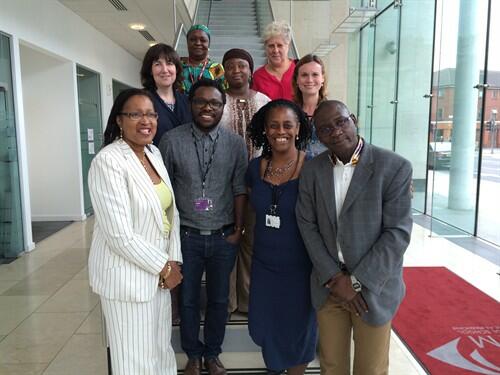
Improving adolescent reproductive health (ARH) in sub-Saharan Africa is fundamental to improving health and economic outcomes on this continent.
Women and girls in Niger have amongst the highest fertility rates and poorest pregnancy outcomes in the world. Poor reproductive health continues to be a key barrier to development in Tanzania.
But norms, cultures and practices within the health, education and community sectors continue to prohibit access, uptake and effective implementation of much needed services among adolescents in these countries and elsewhere.
Led by LSTM’s Dr Angela Obasi, the Health, Education and Community Integration (IntHEC) consortium aims to find effective ways to overcome these barriers in Tanzania and Niger.
The consortium comprises eight partners: Belgium’s Université Catholique de Louvain (UCL); Tanzania’s National Institute for Medical Research (NIMR); Ministry of Health and Social Welfare (MoSHW) and Ministry of Education and Vocational Training (MoEVT); Niger’s Laboratory of Study and Research for Social Dynamics and Development(LASDEL), Ministry of Public Health (MoPH); and the United Nations Population Fund (UNPFA) and is now entering its final year.
In addition to collecting data in a large-scale cluster randomised survey, the programme has implemented a suite of interventions in a range of settings in both countries.
Preliminary results of this final, crucial year are being presented in the 5th Partners workshop, which has been held at LSTM this week. There have been four main objectives of the meeting: to evaluate the lessons from the in-depth process evaluation that has been conducted and integrate this into policy briefings and lessons learnt for the relevant Ministries and other key actors; to review preliminary data and finalise the analysis plan for the final impact evaluation survey which has been completed in over 7,000 individuals and to finalise interim publications.
“The workshop has provided a vital opportunity for scientists, government implementation teams and policy makers to exchange front line implementation experience of overlapping and complementary interventions” Said Dr Angela Obasi. “We are particularly pleased that the UNFPA country representative for Niger was been able to join us for this important meeting, given the synergies between this project and the rest of UNFPA activities in Niger. Surveys in both Tanzania and Niger have achieved recruitment targets and the preliminary data is very interesting. In addition to the impact evaluation I have been especially impressed by the discussions that we have had about the intervention process evaluation and the lessons we have learnt from our mystery client surveys."